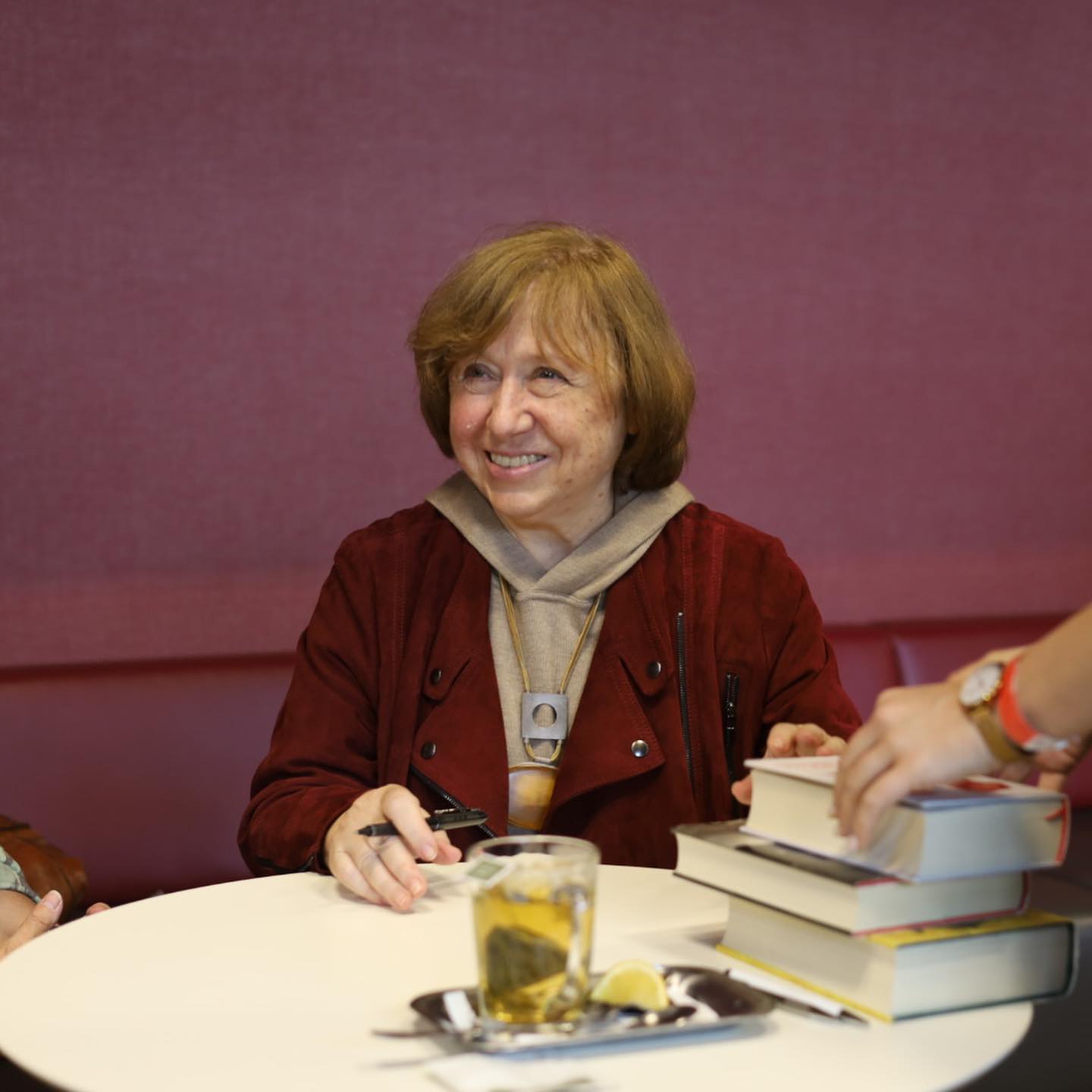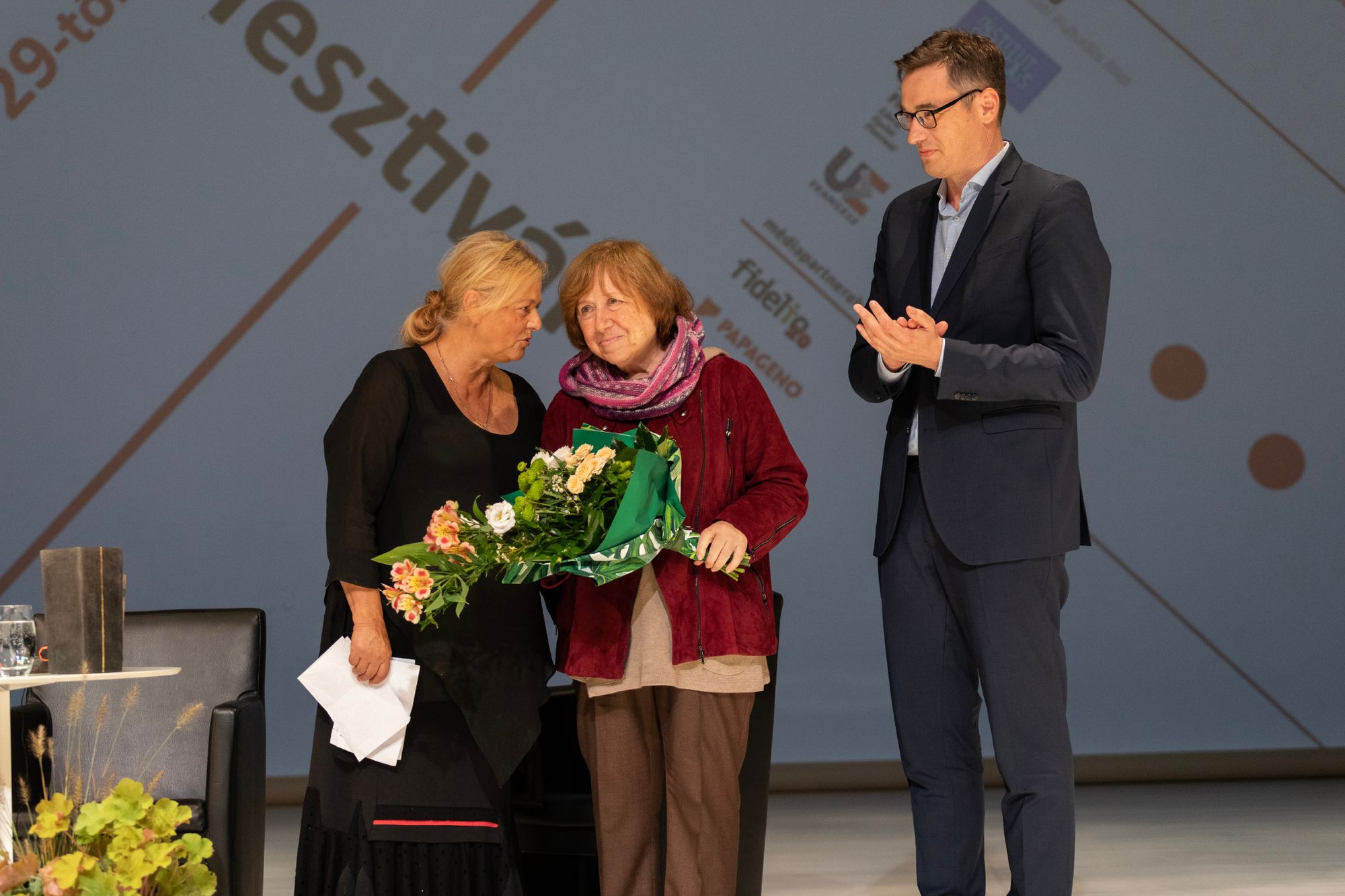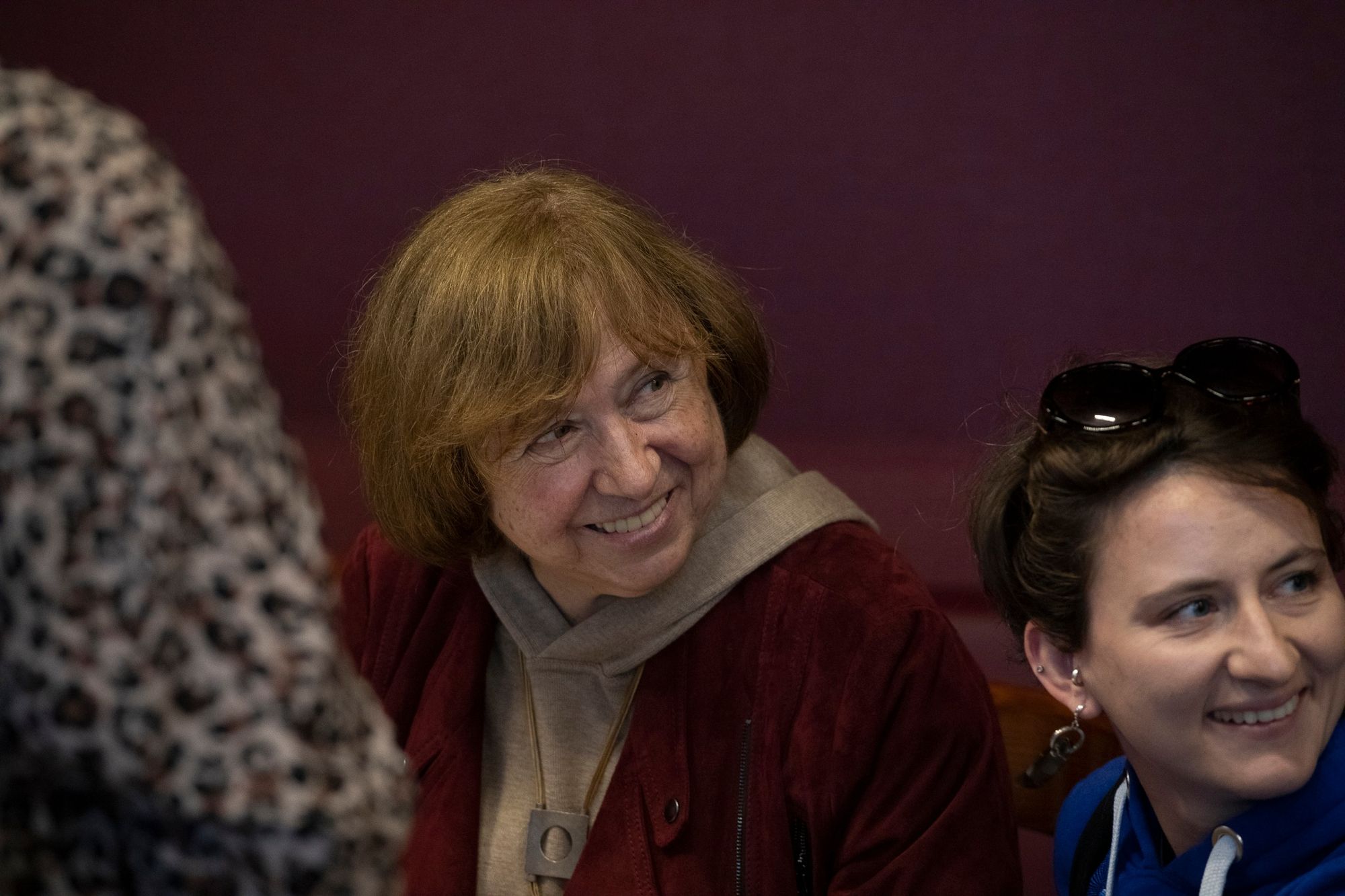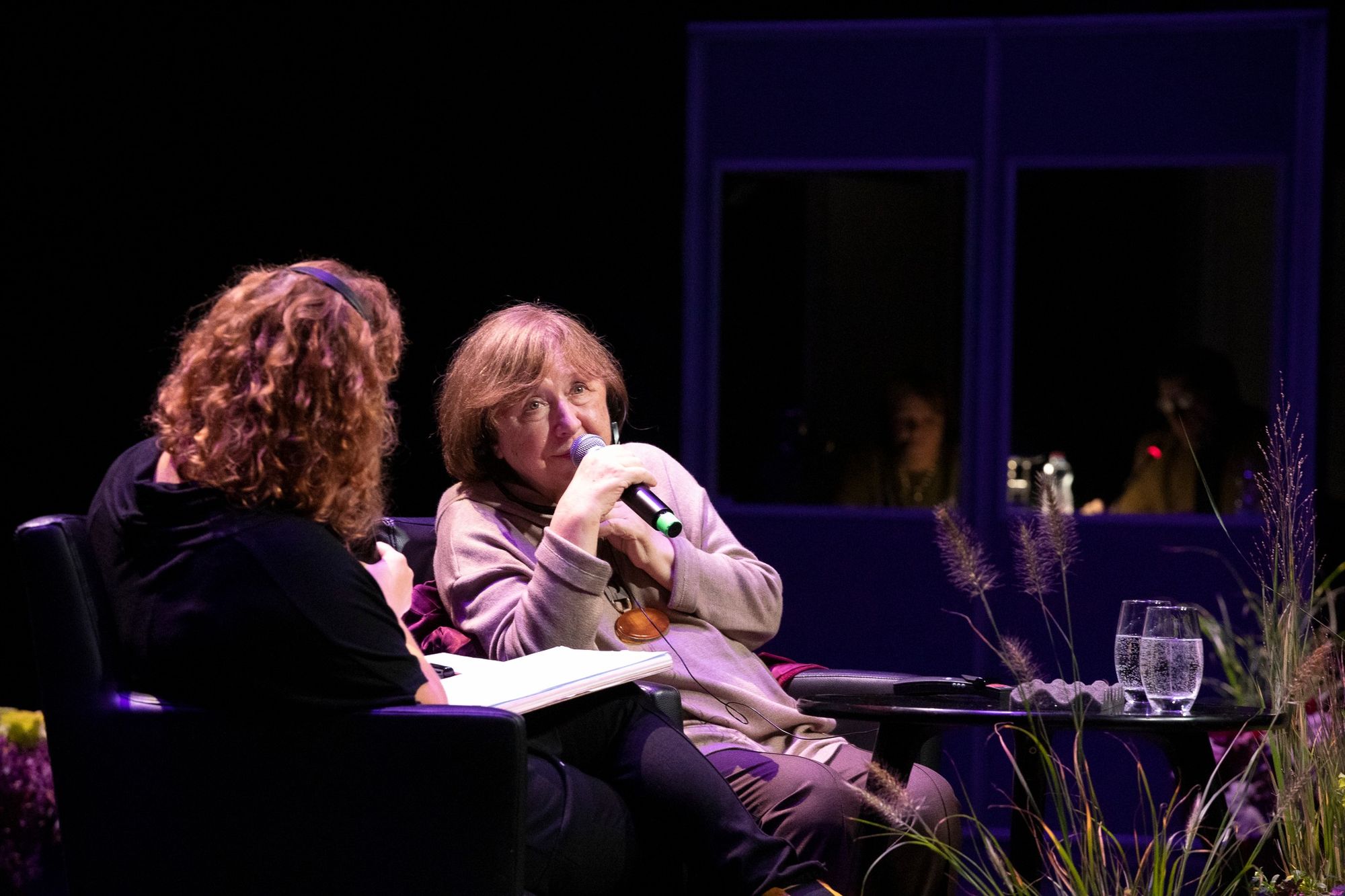Nobel Prize-winning author Svetlana Alexievich was the guest of honor at the 27th International Book Festival Budapest in Hungary and received the Budapest Grand Prize from the Mayor of Budapest.
The International Book Festival Budapest, held at the Millenáris, was opened by one of Hungary’s best-known writers, Krisztina Tóth, who praised the work of the guest of honor, noting that “Svetlana Alexievich never kept her head down, but always wrote about reality with amazing courage.” Through the example of Salman Rushdie, who was brutally attacked in August, Krisztina Tóth spoke about the life of a writer, and how far it is from being solely a peaceful job behind a desk. In her opinion, the writer’s task is to record reality and to stir the pot, as Alexievich does with her documentary-style books.

A master of bold decisions
The Belarusian writer was extolled by Hungarian peer, János Háy, who, in reflection to the words of Krisztina Tóth, spoke of silence: his generation grew up with fathers and grandfathers who kept silent about the horrors of war, even though these experiences had changed them forever. Háy believes that the past needs to be talked about, that memories are meant to be shared, and this is where the writer helps by telling even the less amusing stories.
“If these books had been on the shelves of world leaders, there would have been no Vietnam, no Afghanistan, no Yugoslav Wars, nor what we have today at our neighbors,” Háy said.
War through the eyes of women
During a panel discussion, Alexievich spoke to Miklós M. Nagy, the Hungarian translator of his works. Referring to Háy’s words, she explained that it was important for her to speak to women in her books because she had also found that men tend to repress their memories more. In fact, many would expect the same of their wives, which is why not everyone was happy when the author interviewed women for her works, such as The Unwomanly Face of War. She recalled her childhood and expressed how interesting she found that after the World War, women did not talk about hatred even after the loss of their sons and husbands. Besides their losses, the disappearance of men meant that they had to do all the work in the village, yet they focused not on their bitterness but on bringing up their surviving children.
“Women’s stories and narratives were previously absent from history and literature, and the male view prevailed everywhere. Women had a different view of the details, remembering not only the suffering of people caused by the war but also that of animals and plants. The woman who spoke of her dead husband used simple, precise words, like those in the works of Shakespeare or Dostoevsky,” said Alexievich.

An oeuvre built from fragments of the past
Born in 1948 in Ukraine but raised in Belarus, the documentary-style works of Svetlana Alexievich focus on the traumatic events of the Soviet Union and the post-Soviet era. While she has experimented with several genres, she has always been drawn to true stories. Alexievich always prepares her books with meticulous research, talking to hundreds of survivors. Sometimes tens of thousands of pages of transcripts are produced from the stories she is told, which are then turned into a text of literary quality without compromising the authenticity of the stories. She began her career as a reporter and later as a correspondent for a literary magazine in Minsk. Her first book, The Unwomanly Face of War, originally published in 1985, presents the Second World War from a female perspective, with monologues by women fighting in the Red Army. She immediately earned the wrath of the authorities (along with a lawsuit) with this work, which revealed many unpublished details about the war. Her stories revealed that, although women were often capable of doing the same work in war as men, lying in trenches and assembling or disassembling a machine gun at lightning speed, they could never become real killing machines because, in time, they began to see the human in the enemy. The indictment claimed that in doing so, she had desecrated the memory of Soviet heroes. She was forced to leave her country for the first time in 2000 because of her 1989 book Boys in a Zinc, after a long series of trials and interrogations. The work deals with the Soviet-Afghan war, the true events of which were also suppressed in the press at the time. It contains interviews with survivors and relatives of fallen soldiers, which led to another lawsuit, accusing her of falsifying the events. She moved back to Minsk in 2011, but since 2020 she has been living in exile in Germany again.

An indelible mark of courage
During the conversation in Budapest, Svetlana Alexievich recalled the night she was forced to leave Belarus in 2020 because of the atrocities she faced and the fear of arrest. She spoke with emotion of how European diplomats had stood guard over her in her final days in Belarus to ensure she would not be harmed. Her works have been published so far in more than 19 countries. She first gained widespread recognition in 2015 by winning the Nobel Prize in Literature. According to the Swedish Academy of Sciences, “Svetlana Alexievich’s polyphonic writings are a monument to suffering and courage”. A few years later, her book Chernobyl Prayer was sold in massive numbers following the 2019 premiere of HBO’s hit series Chernobyl, based in part on this work.
What should we read from Svetlana Alexievich?
Boys in Zinc
Secondhand Time: The Last of the Soviets
The Unwomanly Face of War
Chernobyl Prayer
Last Witnesses: An Oral History of the Children of World War II

The contours of time | GRAFFITI, an album by László Lugo Lugosi

Why are there increasingly more Americans in Europe?










